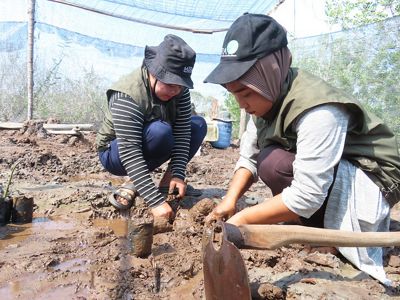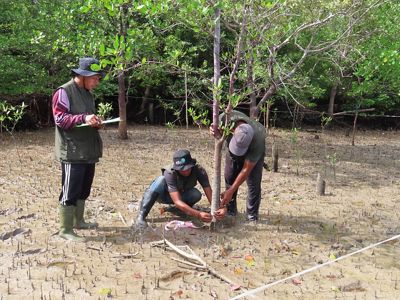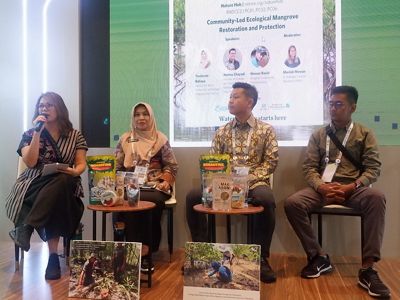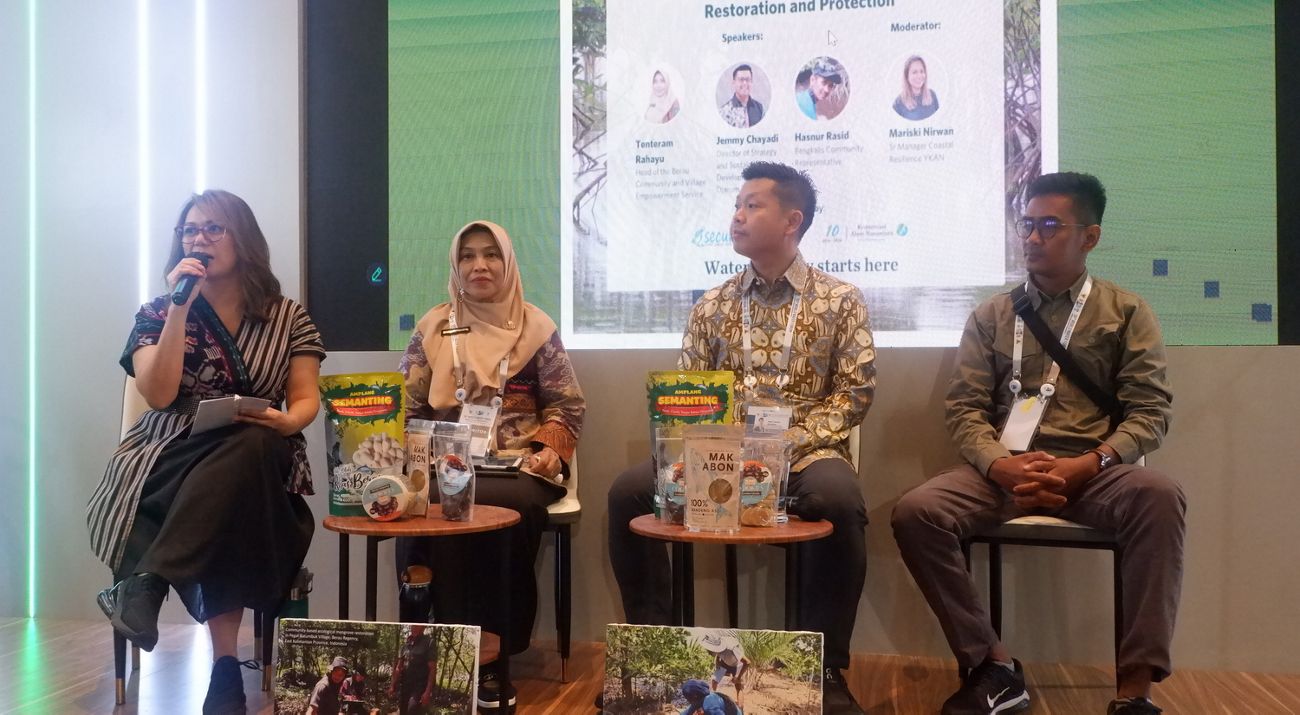Preserving Water Resources and Livelihoods through Community-Based Mangrove Restoration
Media Contacts
-
Meita Annissa
Public Communications Manager YKAN
Yayasan Konservasi Alam Nusantara
Email: meita.annissa@ykan.or.id
In celebration of the 10th World Water Forum (WWF), Yayasan Konservasi Alam Nusantara (YKAN), together with the Berau Regency Government and partners, held a panel session themed "Community-Based Ecological Mangrove Restoration and Protection" on Tuesday, May 21, 2024, at the Nature Hub Pavilion. This discussion emphasized that mangrove restoration benefits environmental conservation, water sources, and community livelihoods.
The communities in Berau, which has the largest mangrove ecosystem in East Kalimantan, covering more than 55,000 hectares, have felt the benefits of mangrove restoration. Initially, the mangrove ecosystem in Berau faced continuous pressure due to conversion for aquaculture and settlements. Mangroves are vital ecosystems for preventing abrasion and erosion, providing habitats for various biodiversity, and serving as natural water filters. They filter pollutants, improving the water quality from rivers to estuaries and marine environments.

The Berau Regency Government has taken various measures to protect mangrove areas, including Regional Regulation No. 5 of 2020 concerning managing Mangrove Ecosystems in APL. With the support of multiple parties, including YKAN, this was followed up with the issuance of Berau Regent Decree No. 484 of 2022 concerning the Appointment of the Teluk Semanting Village Mangrove Management Team as the Community-Based Sustainable Mangrove Ecotourism Manager. "This ecotourism management spurs the spirit of residents to continue preserving mangroves. Many community members are involved, generating additional income for the community, including women's groups," said Tenteram Rahayu, Head of the Community and Village Empowerment Office (DPMK) of Berau Regency.
The success of mangrove conservation is a testament to the power of collaboration. YKAN spearheaded the Mangrove Ecosystem Restoration Alliance (MERA), a multi-stakeholder platform that unites diverse entities in support of sustainable mangrove ecosystem protection and management in Indonesia. Jemmy Chayadi, Director of Strategy and Sustainable Development at the Djarum Foundation, a member of MERA, emphasized, "This mangrove conservation aligns with our focus as a private sector entity to have a positive impact on the environment, especially for the community." Since 2018, MERA has been making a difference in the provinces of DKI Jakarta, Central Java, Riau, and South Sumatra.

Hasnur Rasid, a Teluk Pambang Village Forest Management Institution (LPHD) member in Bengkalis Regency, Riau Province, also shared his experience. "Previously, mangrove groups were only active when there were planting projects. The integrated and long-term mangrove conservation program carried out by MERA has proven successful in building community awareness and involvement. More and more community members are joining ecological restoration activities and conducting regular monitoring," he added.
Involving Shrimp Farmers
In Berau Regency and Ogan Komering Ilir (OKI), South Sumatra, many mangrove areas have been converted into traditional shrimp ponds. Low yields prompted farmers to expand their ponds. Since 2020, YKAN and partners have initiated the Shrimp-Carbon Aquaculture (SECURE) program to combine traditional shrimp farming with sustainable mangrove restoration in these two regencies.

The SECURE program presents a win-win solution, preserving mangroves while supporting shrimp farmers' livelihoods. The existing ponds are divided into two parts, with 80% of the area dedicated to mangrove restoration and the remaining 20% for aquaculture. "The SECURE approach is a win-win solution to preserve mangroves without disrupting shrimp farmers' livelihoods. In fact, with mangroves, it can support farming practices by providing natural fish feed, filtering water, and reducing carbon emissions," explained Mariski Nirwan, YKAN Senior Manager for Coastal Resilience.
Yayasan Konservasi Alam Nusantara (YKAN) is a scientific-based non-profit organization that has been present in Indonesia since 2014. With the mission of protecting lands and waters as life support systems, we provide innovative solutions to realize the harmony of nature and humans through effective natural resource management, prioritizing a non-confrontational approach, and building a network of partnerships with all stakeholders for a sustainable Indonesia. For more information, visit ykan.or.id.


